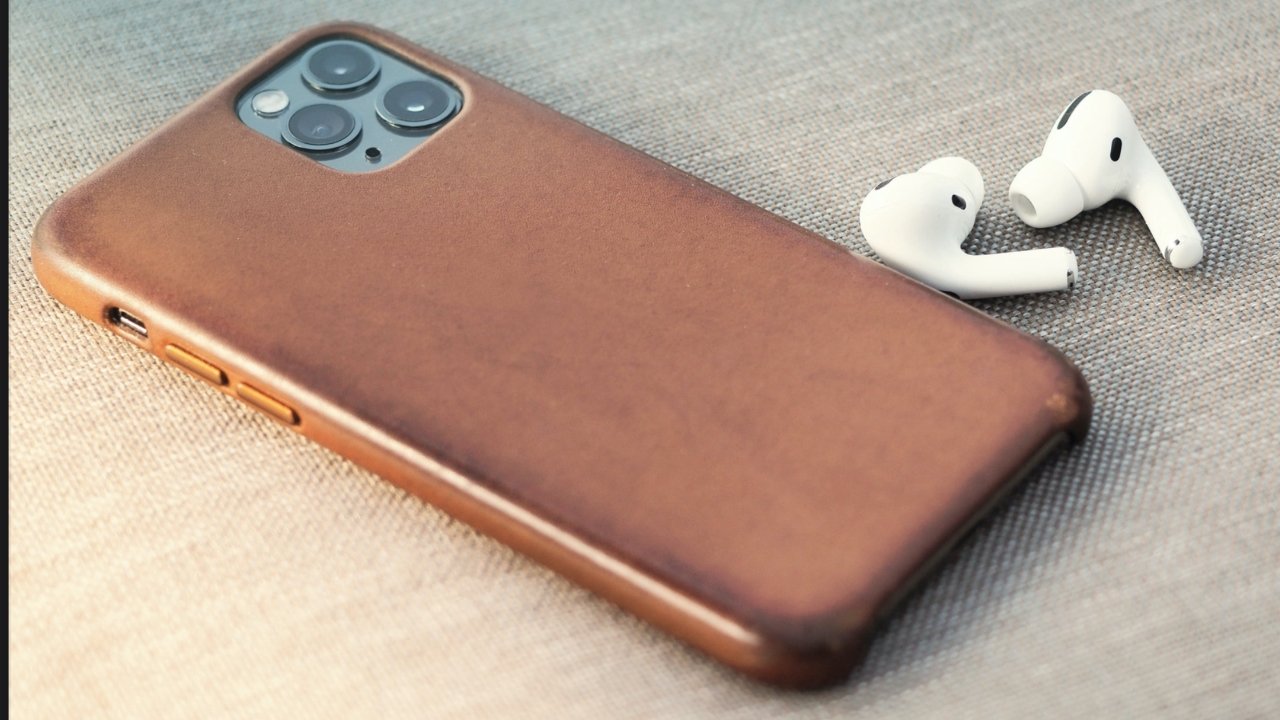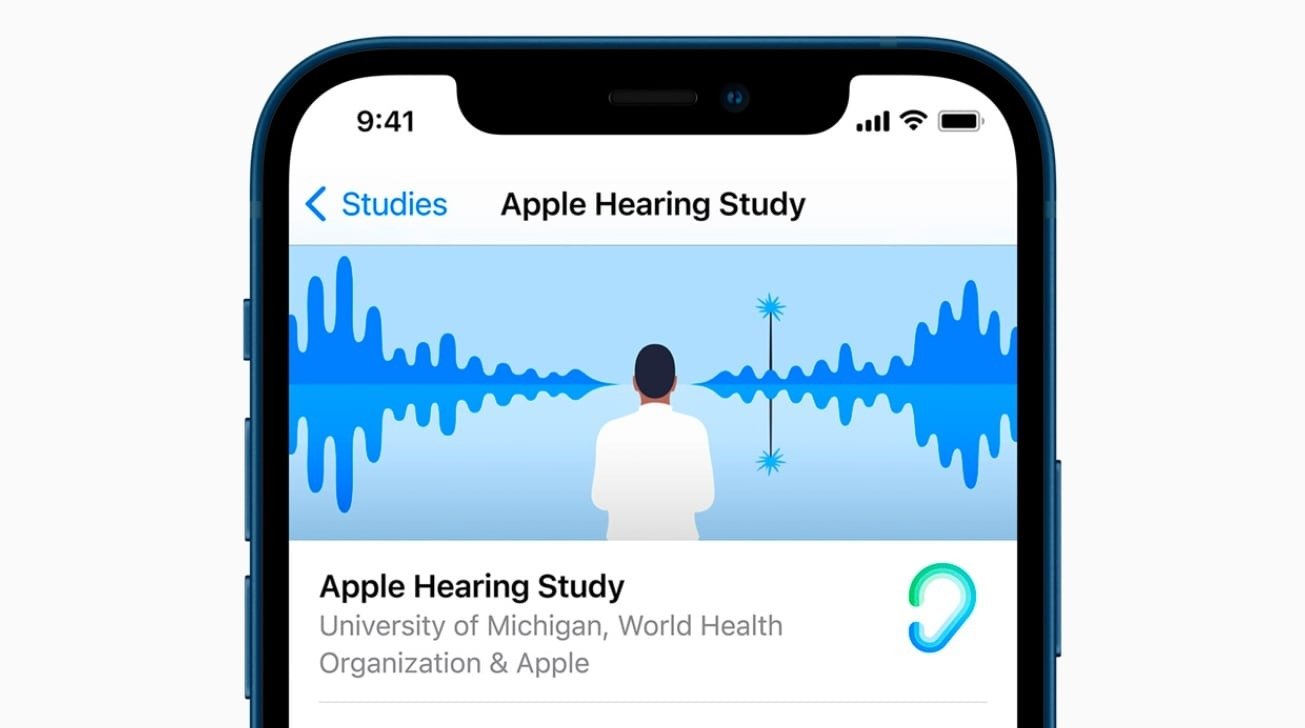AirPods Pro could act as hearing aids for those with minimal hearing loss, study claims
Rather than using a hearing aid and potentially be subjected to some social stigma, those with some moderate hearing loss could rely upon the hearing amplification features of AirPods according to a study.

AirPods Pro could work as alternative to hearing aids for those with minimal hearing loss
Apple doesn't promote the AirPods lineup as a health product, but when paired with Apple Health a user can create a hearing profile for auditory amplification. Essentially, AirPods Pro can act as a cheap first step to accepting the need for a hearing aid.
Research firm Auditory Insight studied Apple's hearing health study data to provide some context. According to Auditory Insight, users can rely upon the amplification feature in AirPods Pro, coupled with active noise cancellation (ANC) and Transparency mode, to improve hearing and health throughout the day.
The AirPods Pro cannot replace traditional hearing aids, especially for those with severe hearing loss, but they can provide a half-step to hearing loss awareness. If a user with mild hearing loss realizes the AirPods Pro can amplify their hearing and protect them to some extent with ANC, then they may be more accepting of a hearing aid in the future.
The Apple Research study had thousands of participants from March 2020 to March 2021 record data about their hearing and answer some questions. Data from the study showed that 25 percent of participants experience a daily average of environmental sound exposure that is higher than the limit recommended by the World Health Organization.

Apple Research hearing study
Apple Watch wearers provided even more data thanks to it monitoring environmental noise and notifying users of extreme noise. This data and headphone volume data is stored in Apple Health and can give the user insight to how their hearing health is changing over time.
Transparency mode allows the user to pair the AirPods Pro with an audiogram to create a unique auditory profile. This profile enables the AirPods Pro to amplify certain noise that would otherwise be inaudible to someone with hearing loss.
Auditory Insights says that AirPods Pro are not a perfect replacement for hearing aids, however. The audiogram must be completed in a separate app and imported into Apple Health, a roadblock for some users who may not be aware of the feature. Also, the AirPods Pro have a battery life of only 4.5 hours, which limits how long a user can continuously use one pair throughout the day.
Amplification isn't perfect either. According to the Auditory Insights study, the AirPods Pro couldn't amplify high-pitched noises as well as conventional hearing aids.
Auditory Insight suggests that given the health data Apple has collected, the company could make big moves in the industry in future hardware. While the current models are limited by amplification ability and battery life, future models could implement these findings directly.
The research firm suggests that one of two actions will result from the study's findings. It suggests that either Apple will improve future hardware for better hearing amplification and protection, or the hearing aid industry can innovate and bring ANC and other features to affordable hearing aids.
Stay on top of all Apple news right from your HomePod. Say, "Hey, Siri, play AppleInsider," and you'll get the latest AppleInsider Podcast. Or ask your HomePod mini for "AppleInsider Daily" instead and you'll hear a fast update direct from our news team. And, if you're interested in Apple-centric home automation, say "Hey, Siri, play HomeKit Insider," and you'll be listening to our newest specialized podcast in moments.

AirPods Pro could work as alternative to hearing aids for those with minimal hearing loss
Apple doesn't promote the AirPods lineup as a health product, but when paired with Apple Health a user can create a hearing profile for auditory amplification. Essentially, AirPods Pro can act as a cheap first step to accepting the need for a hearing aid.
Research firm Auditory Insight studied Apple's hearing health study data to provide some context. According to Auditory Insight, users can rely upon the amplification feature in AirPods Pro, coupled with active noise cancellation (ANC) and Transparency mode, to improve hearing and health throughout the day.
The AirPods Pro cannot replace traditional hearing aids, especially for those with severe hearing loss, but they can provide a half-step to hearing loss awareness. If a user with mild hearing loss realizes the AirPods Pro can amplify their hearing and protect them to some extent with ANC, then they may be more accepting of a hearing aid in the future.
The Apple Research study had thousands of participants from March 2020 to March 2021 record data about their hearing and answer some questions. Data from the study showed that 25 percent of participants experience a daily average of environmental sound exposure that is higher than the limit recommended by the World Health Organization.

Apple Research hearing study
Apple Watch wearers provided even more data thanks to it monitoring environmental noise and notifying users of extreme noise. This data and headphone volume data is stored in Apple Health and can give the user insight to how their hearing health is changing over time.
Transparency mode allows the user to pair the AirPods Pro with an audiogram to create a unique auditory profile. This profile enables the AirPods Pro to amplify certain noise that would otherwise be inaudible to someone with hearing loss.
Auditory Insights says that AirPods Pro are not a perfect replacement for hearing aids, however. The audiogram must be completed in a separate app and imported into Apple Health, a roadblock for some users who may not be aware of the feature. Also, the AirPods Pro have a battery life of only 4.5 hours, which limits how long a user can continuously use one pair throughout the day.
Amplification isn't perfect either. According to the Auditory Insights study, the AirPods Pro couldn't amplify high-pitched noises as well as conventional hearing aids.
Auditory Insight suggests that given the health data Apple has collected, the company could make big moves in the industry in future hardware. While the current models are limited by amplification ability and battery life, future models could implement these findings directly.
The research firm suggests that one of two actions will result from the study's findings. It suggests that either Apple will improve future hardware for better hearing amplification and protection, or the hearing aid industry can innovate and bring ANC and other features to affordable hearing aids.
Stay on top of all Apple news right from your HomePod. Say, "Hey, Siri, play AppleInsider," and you'll get the latest AppleInsider Podcast. Or ask your HomePod mini for "AppleInsider Daily" instead and you'll hear a fast update direct from our news team. And, if you're interested in Apple-centric home automation, say "Hey, Siri, play HomeKit Insider," and you'll be listening to our newest specialized podcast in moments.

Comments
The noise cancellation aspect Apple brings to the table must also be a potential aid in the mix. An app with AI ability would be too. I really hope Apple pursues this area of research and fast. To be honest I thought or maybe just assumed they were already.
P.S. I tried the test posted on AI for the ability to detect Lossless audio improvement. Haha! However, Dolby Atmos actually improves my ability to hear greatly.
And do I have to be part of a Research program or is it available to anyone now?
I just took advantage of one: for me new, high strength glass with exam and frame would run well over $500 and likely over $750.
Next, you'll be telling me that the so-called "Brown Note" doesn't exist!
Smash the conspiracy!
/s
And the products are not great.
Apple needs to do this. I would love to have the hearing aid industry complain of a 30% app store cut as a comeuppance.